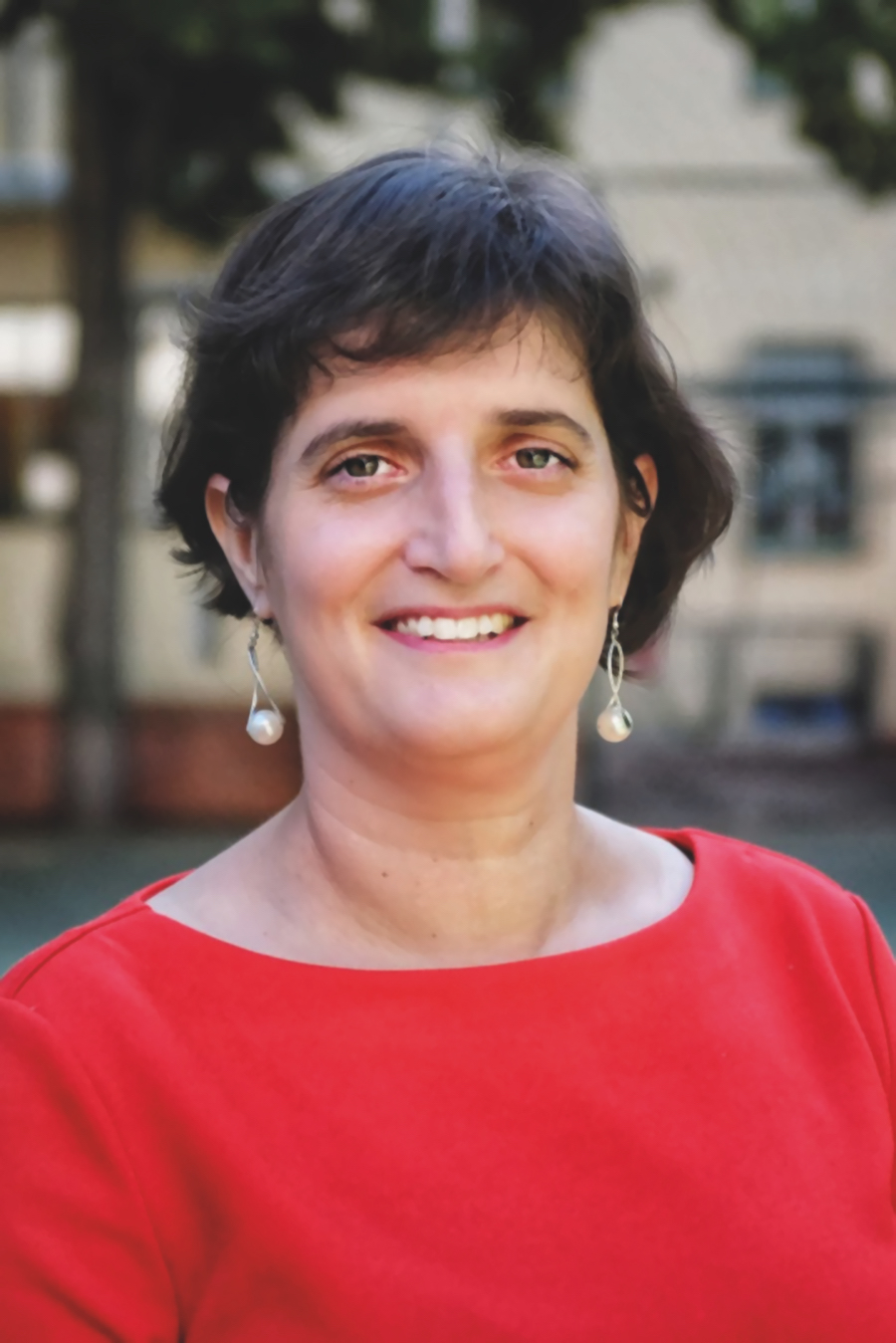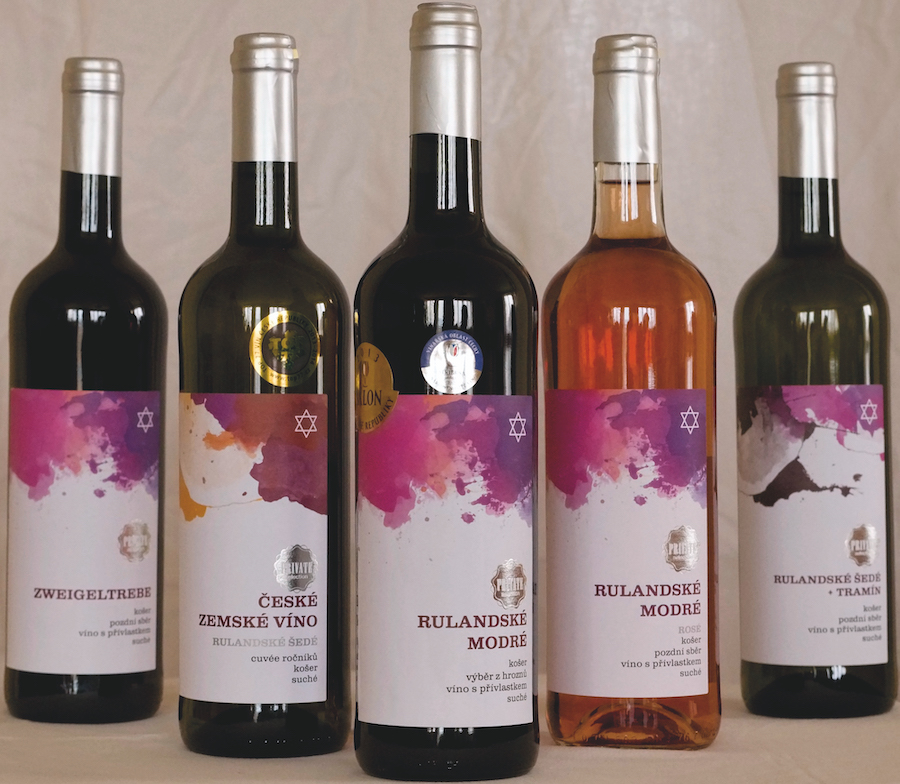“Breaking boundaries: FEMALE JEWISH ORTHODOX WINEMAKERS”

Tereza Gafna Váňová, Wine Maker
Did you know that the tradition of winemaking at the Most region is over 1000 years old? The climate conditions are comparable to Burgundy or Rhineland. So what is the story behind the only kosher winery in the Czech Republic? It is my pleasure to introduce you to Tereza Gafna Váňová. After the sudden death of her husband Moshe, she continued the family winemaking tradition with Moshe’s sister Kateřina Kreisinger, on top of being a full-time teacher at the Lauder Schools of Prague – not to mention her involvement in the Jewish community as a woman leader.
What is it like to be a woman winemaker in the winemaking industry? And is there a difference when it comes to being a woman winemaker in the Orthodox Jewish Community?
While most winemakers in the Czech Republic are men, worldwide there is a substantial number of women who own wineries or oversee the winemaking process. It is well known that women and men have different sensory qualities, so each gender thus approaches the winemaking process in a slightly different manner. It certainly is an asset to have both men and women involved when making wine.
As far as winemaking in the Orthodox Jewish world is concerned, I am very fortunate to be a part of a Jewish community that values its women and appreciates their work and wisdom. In the Prague Jewish niche, there are quite a few women in places of influence and power or in positions of leadership in spiritual or communal issues. When I started helping my husband make wine and consulted Rabbi Kalcheim, the supervisor of Czech Kashrut (the body of Jewish religious laws concerning food), he encouraged me to engage in the endeavour and has been a great supporter of me ever since.
I do admit, though, that there are physical limits to what a woman can do in terms of hard manual wine-making labor. Luckily, today, many parts of the process are done by machines, and the rest that is physically difficult can always be done by skilful co-workers with stronger muscles.

Ivana Mertova and Kateřina Kulířová – two of the many Váňa family young women helping to run the family business
What are the specifics when producing kosher wine? Also, sometimes you might even come across the term mevushal?
Kosher winemaking is identical to regular winemaking in terms of technological processes. The main difference is that from the moment of crushing the grapes until the moment of bottling the wine, the only hands that are allowed to move the wine around (even if it be pushing a switch that starts a pump for instance) must be the hands of a God-fearing Jew, which is a Jew that keeps or observes Jewish law.
This has a root in the fact that kosher wine is used for sacrificial purposes and as such cannot be made by a person that does not follow the rules of the Jewish faith. Mevushal wine is a special kind of kosher wine – it is a pasteurized kind of wine that partly goes around the rules and makes it possible for the ready-made bottled wine to stay kosher even when poured from the bottle by a non-Jewish person.
I love the movie ‘A Good Year’ directed by Ridley Scott. Russell Crow transforms from a British investment broker to a winemaker in Provence. However, after I visited your winery, I realized that the movie does not quite show the full picture of the laborious winemaking process. What are the tasks you like the most and which ones are your least favourite?
I really love this movie! I think that it very nicely depicts the love, sense of humour, and cute ups-and-downs of people that make wine. Naturally, it is a made-up fairy-tale – but why not! I like all parts of the winemaking process, even the dirty and stinky ones (and there are quite a few!). What I could do without are the times of year when you fear spring frosts and summer drafts or fall mouldy conducive weather – but that’s a part of a farmer ́s life and it teaches everybody humbleness in the face of the power of nature and the hand of God.

The future generation
My favourite part of winemaking would be probably designing the vignettes. I believe that some of yours are quite „un-Orthodox“…, such as Neshama (Soul) portrayed as a unicorn.
Most of our vignettes were originally the idea of my late husband Moshe. It is interesting to point out that the author of the graphic design is my friend Anna Frajtova, yet another woman who is a part of our winemaking family. When designing the vignettes and looking for names of editions for the wines, we think about how to communicate passion for the wine we make with our customers – it is a great part of the process and I enjoy designing the vignettes immensely. The design and the names of the wines tell the story of how, when, and under which circumstances the wines were made.
Your wines have collected quite a few awards and medals. Are you yourself planning on pursuing any special further education or sommelier courses etc?
My husband ́s sister Kateřina is my biggest teacher, and she has taught me most of what I know about wine. I try to read about wine and learn from experience. It is a handicap to enter such a demanding field at a later age in life. Even though I am not giving up on myself in this matter, I have realistic expectations about how much I can still learn and how “winemaker-like” I can become. As much as I am trying to learn, I am mainly focusing on learning the specific rules of kosher wine and relying upon the expertise of Kateřina in other aspects. But ask me five years from now, I might be singing a different song.
How did the pandemic affect the winemaking industry and your business in particular?
Wine is not a perishable good and luckily it is produced mainly in open air – therefore, we did not see the first hit of the lockdowns in terms of immediate losses and limits on workforce (home office etc.). Also, people started to enjoy wine more at home and created a habit of dining well with a good bottle at home, which helped us. However, in general, these are uncertain times for many. We are a small business and must search for all possible support and opportunities for sustainability and growth.
What is your biggest wish when it comes to the winery?
I wish for the winery to continue to be a treasure and joy for our family. We have never been big money-makers or sharks in the market. But we strive for the reputation of a family company that produces fair quality goods, values its every customer, and takes good care of the environment and immediate surrounding nature of the winery. Not only do we have a certificate of ecological and nature-friendly farmers, but we also plant trees, support local bird colonies, have beehives in the vineyard and many other activities. I also appreciate the relationships we have in our immediate family as well as with our business partners. I only wish that we sustain and develop what we have right now.

Anna Mertová, Lucie Rolko and Kateřina Kreisinger – the three daughters of Ivan Váňa, the founder of the vinery
What are your plans for 2022?
My most immediate plan is to start making sparkling kosher wine – and I very much hope that this will be the novelty and success of this year.
Seeing how busy you are – a teacher, a winemaker, a mother of two… how and when do manage to rest?
I walk. As much as I can. Either with Nordic walking sticks or just normally walk, just like that. I usually manage to walk between 100km to sometimes even 150km every month. It is a great way of combining healthy physical exercise and clearing your head. It ́s free and can be done by anybody, anytime, anywhere. Highly recommended!

Text: Linda Štucbartová; Photo: The winery archive

